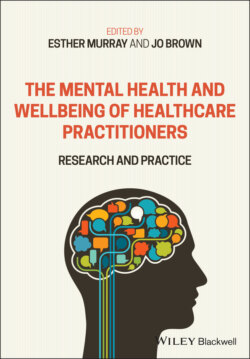Читать книгу The Mental Health and Wellbeing of Healthcare Practitioners - Группа авторов - Страница 12
FUTURE DIRECTIONS FOR RESEARCH AND INTERVENTION
ОглавлениеThere is no clear, recognised treatment for moral injury at the time of writing. There is speculation about the use of Acceptance and Commitment Therapy [19] given its focus on accepting the world as it is, with the good and the bad, and the equal emphasis on psychological flexibility. Treatments which focus on psychological flexibility are useful because they remind people that they are not their thoughts, that their thoughts occur independent of them and need not be engaged with, and if they are engaged with, their options for action and engagement can be of their own choosing. The ability to notice a world in which terrible things can happen and in which wonderful things also happen and not become fixated on either of these may be why this type of cognitive behavioural therapy would work.
There is a move among healthcare professionals to talk about preventing moral injury, which of course is not possible. The recent COVID pandemic has meant that the conditions for moral injury are all present – poor decisions made by leaders are causing death and post‐viral disability, as well as economic devastation and healthcare workers are powerless to provide sufficiently ‘good’ care because they lack the resources to do so. While this experience is probably more pronounced in the United Kingdom and the United States, high death tolls among healthcare workers are common across the world which further adds to the sense of being put in harm's way. So, the moral injury is inevitable, and we need to plan for understanding how to support people through the grieving and meaning‐making processes which might alleviate it.
Work is underway to develop questionnaires to understand moral injury in healthcare, with a view to mapping the problem and developing strategies to address it. Especially during the COVID‐19 pandemic it has gained a great deal of traction and been mentioned in the popular press (Gerada, 16 October 2020) [20]. It has become clear that the incident which might be considered morally injurious differs greatly from one person to another. It is likely that the most effective interventions for managing harm will be those with which we are already familiar, that is, peer support, having time to talk, to debrief cases together, mapping both the clinical decisions and thinking about the feelings which these provoked. Healthcare professionals should be supported in finding solutions which work in their own settings and there will need to be a recognition of the structural issues that are affecting spaces for peer support.
